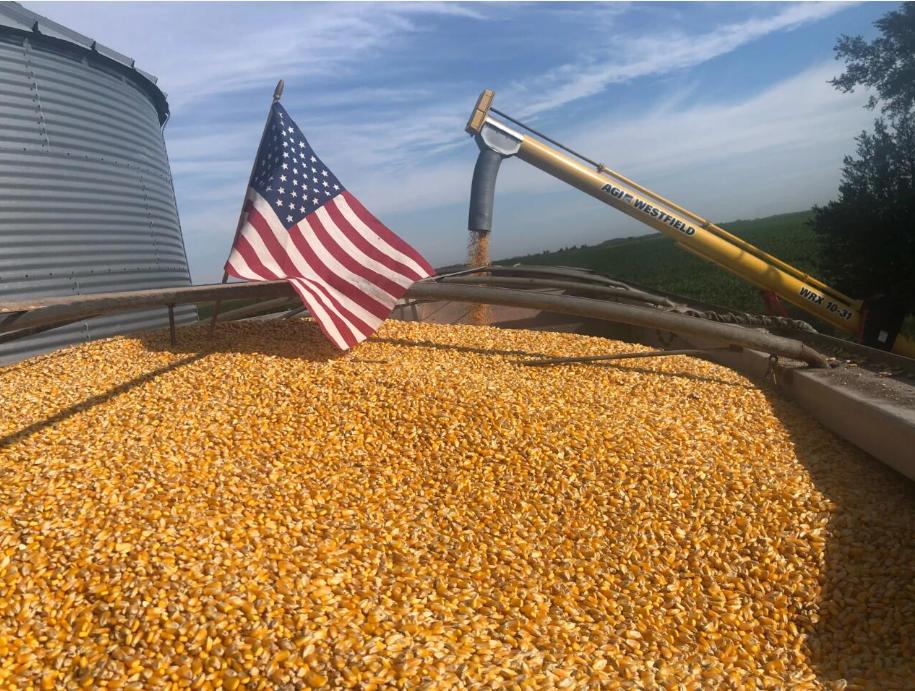
A recent study found that a new international trade war could severely impact U.S. soybean and corn growers and boost the rise of competitors. The study was commissioned by the American Soybean Association and the American Corn Growers Association and conducted by the World Agricultural Economics and Environmental Service. The study concluded that repeated tariff policies accelerated the conversion of farmland in South America and had a permanent impact on global soybean and corn exports. American soybean and corn growers bear the burden. The chief economist of the American Soybean Association said, "The U.S. agricultural sector is experiencing a severe economic downturn. The study shows that trade wars can easily exacerbate the adverse conditions that put financial pressure on farmers. Even after the trade war officially ends, the loss of market share could be permanent."
In a report accompanying the study, the economists outline how, in the 2018 trade war, the United States extended tariffs on steel and aluminum to several major trading partners and separately imposed tariffs on a large number of products imported from other countries. In response, other countries have imposed retaliatory tariffs on many U.S. products, including many agricultural and food products. This has led to a sharp reduction in US agricultural exports to these countries. Therefore, the impact of this move is also very broad. The first is the impact on US agriculture, tariffs have led to a reduction in US corn and soybean exports, directly causing economic losses. For example, one study showed that if other countries removed existing tariff exemptions for U.S. agricultural products and reinstated tariffs, U.S. soybean exports would fall by 51.8 percent and corn exports would fall by 84.3 percent. This will put American farmers under tremendous financial pressure and may even lead to the bankruptcy of some farmers. Tariffs have accelerated the conversion of farmland in South America, allowing competitors such as Brazil and Argentina to increase their share of the global soybean and corn export market. The United States has become less competitive in the global market, and it is difficult to maintain its previous export advantage. At the same time, the decline in exports and market share caused by the tariff policy has further exacerbated the decline of the US agricultural sector. Farmers are under greater financial pressure, investment is reduced and agricultural productivity is reduced.
The second is the impact on international agriculture, with declining U.S. corn and soybean exports providing an opportunity for competitors such as Brazil and Argentina. These countries will expand their global market share and become a significant force in the global agricultural market. Tariffs could also lead to volatility in global agricultural prices. On the one hand, lower exports of U.S. agricultural products could reduce global supplies and push up prices. That could eventually increase production costs and reduce consumer purchasing power, which could have a ripple effect on the global economy. On the other hand, increased production by competitors could also put downward pressure on prices. Such price volatility will have a profound impact on agricultural producers and consumers worldwide. At the same time, tariffs could lead to adjustments in global agricultural supply chains. As U.S. corn and soybean exports decline, some countries may need to look to other suppliers to meet their needs, changing the supply chain landscape. Such supply chain adjustments may take some time to adjust to and may introduce additional costs and uncertainties. At the same time, this will prompt countries to pay more attention to the diversity and resilience of supply chains to reduce dependence on a single supplier.
The third is the impact on international trade. Tariff policy is an important part of international trade disputes. For many developing countries, US corn and soybeans are important import sources. The decline in exports caused by tariffs could put these countries under greater import pressure and increase their import costs. This could have adverse effects on food security and agricultural development in developing countries, so a decline in U.S. corn and soybean exports would further strain international trade relations. This could lead to more trade retaliation and frictions, adversely affecting the global trade environment. At the same time, it will prompt countries to pay more attention to their own agricultural security and food security, potentially triggering more protectionist measures.

Affected by the cooling of market risk aversion sentiment, the gold that had been surging throughout the week ended the day with a sharp decline.
Affected by the cooling of market risk aversion sentiment, …
Recently, according to Reuters, Asian stock markets rose co…
On October 20th, the Argentine central bank announced the c…
Ukrainian President Volodymyr Zelenskyy said in a speech on…
When the Trump administration repeatedly released signals t…
On October 22, 2025, the international financial market onc…